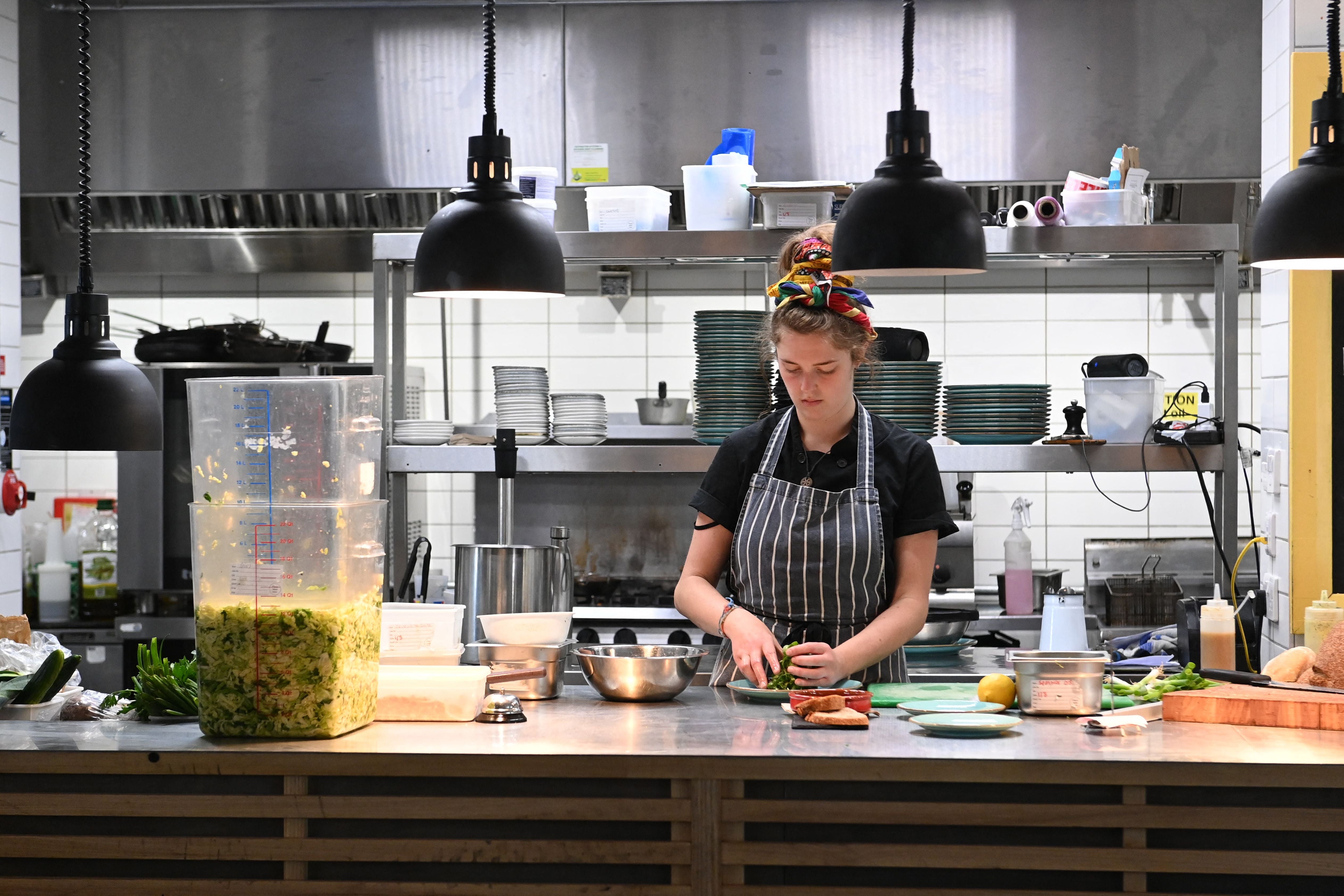The hospitality sector will be ruined without energy price caps
There will be huge job losses and permanent closures across the industry, which is already on its knees after Brexit and Covid, making the help during the pandemic little more than a sticking plaster, writes Emma Henderson


October will be a very worrying time for everyone in this country, as the energy price cap, set by Ofgem, is rising by unimaginable amounts to more than £3,500 a year per household. It will throw thousands of people into poverty.
But what the government is not talking about is businesses. There is no energy price cap for them. Office buildings use plenty of energy, with lights, computers, fridges, toilets and so on in near-constant use, but one of the worst-affected industries will be the food and hospitality sector – restaurants, takeaways, cafes, pubs, bars and hotels. Many of these businesses use huge industrial fridges, walk-in freezers, multiple industrial cookers and dishwashers, fryers, extractor fans, hot passes, warming ovens, and whatever else I’ve missed out. Most of these appliances use energy all day, and well into the night, too.
Most of them can’t simply be turned off, as having them in constant use is part of the essential running of the business, and how it makes money. Without a fryer, a fish and chip shop cannot cook its literal bread and butter to turn over a living. Large fridges ensure that prepped food is safe to eat. Without hot passes, food will go cold waiting to be plated up, and could end up being binned. Of course, there are some things that can be done, but few corners can be cut when energy is so essential for a business to function.
And who is going to sit in a freezing cold restaurant if it can’t afford to put the heating on as well as the ovens it needs to cook the food? I’m all for a fun USP, but sitting inside wrapped up in coats, scarves and gloves while trying to eat a lukewarm meal is a step far too far, even for the most jovial of diners. But it’s one that will likely be the case for people in their own homes, too.
Businesses appear to have been left out of the government’s capping strategy. And as such, it makes the previous two years of support during Covid and lockdowns now seem redundant – little more than a sticking plaster ahead of another crisis.
Staff were furloughed when restaurants were closed, the government covered statutory sick pay for Covid-related absences for small and medium-sized employees, and businesses had commercial rent relief while they were forced to close during lockdowns. When the Omicron variant of Covid reared its ugly head in December 2021, the then chancellor, Rishi Sunak, announced new plans to help businesses in the hospitality and leisure sectors with one-off grants of up to £6k per business. Now we’re well into this energy crisis, but nothing has even been mentioned about the hospitality sector, let alone any sort of specific action or support to help it through another harrowing time.
The hospitality sector saw the biggest economic declines during the pandemic, according to a report from the Commons Library. This, partnered with severe staff shortages caused by Brexit (which are still a problem now), and the requirement to add calorie counts to menus, while still trying to recover from the impact of the forever-changing Covid regulations, means that the industry is on its knees.
Hospitality owners are saying their bills are doubling or tripling, which equates to thousands of extra pounds a month compared to last year. There’s never a good moment for such huge hikes, but they have come at a time when customers, who last year had more disposable income to spend on eating out, are likely to be tightening their own belts. And it’s little things like going out for dinner, buying tickets for the cinema, or that extra subscription that are the first to go.
This is on top of the cost of food increasing, which is not only notable in supermarkets, but of course for restaurants buying their ingredients from suppliers. So, how on earth are these businesses going to be able to bridge the gap of all the price increases, let alone pay their staff?
Chef Jose Pizarro, who has six premises including a pub and a fine dining restaurant across the South East, says the industry is being “crippled” by the price rises and the lack of government support. He’s seen a 147 per cent increase in energy bills since this time last year, and says this is “of course not being passed on to our customers”. But a business can only sustain a situation like that for so long.
To keep up to speed with all the latest opinions and comment, sign up to our free weekly Voices Dispatches newsletter by clicking here
One of the founders of Fallow restaurant in London, James Robson, says: “The 20-month estimated cost for electricity alone at our restaurant has gone from sub-£80k to over £350k. It’s madness.” That is a cost of £17,500 a month just on energy.
Yes, it’s a devastating situation for households – where many cannot afford the rates now, let alone come October – but many food-serving businesses will face permanent closure. And not just independents: it will be widespread across the industry. There are going to be huge job losses for people in the hospitality trade. Closing down businesses will send plenty more people into desperate situations.
Just like during lockdowns, the high street will once again look desolate, as our favourite pubs, takeaways, restaurants and cafes – to take just one sector – will perish and shut up shop for good. They’ve been forgotten by the government.






Join our commenting forum
Join thought-provoking conversations, follow other Independent readers and see their replies
Comments